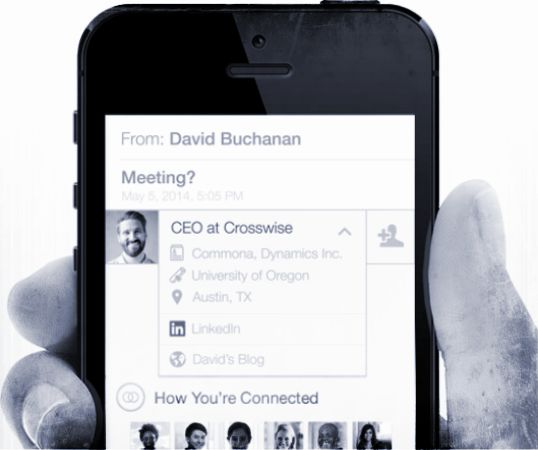
Everyone, even those that do not use the Internet all that much have an online reputation. That may be surprising for some to know. After all, maybe you keep your privacy levels at the highest possible settings, and don’t allow your friends to tag you in pictures and so on. Nonetheless, you have an online reputation and it is well worth keeping it managed. That applies not just to organisations but also to individuals. That’s because if you go for an interview, your new employer will almost certainly check out what they can find out about you online. This means that keeping your online reputation under control is important.
If you are leading a social business, using various social media platforms, it is necessary to consider your online reputation, both the one of your business and the one of yourself as an individual.
According to David Amerland it is important to be able to verify your own identity in the semantic web. Information may be up there online about you and it may or may not be true. A picture of someone online and a name or a short profile are insufficient for the search engines to be able to determine trust. However, Amerland argues that it is better to build up a reputation over time through developing a profile based on activities and engagement. These activities can help to build up a reputation that is “hard to get and easy to lose” according to Amerland. Using a real name is one way that you can help to build up a reputation.
One activity that Google attempts to carry out is “reconciling identities across different social networks”. It does this for a number of reasons, perhaps the most important of which is data verification so that the organisation’s search engine is able to return trustworthy replies based on search queries entered. The more information that is available about you online, the easier this is for Google to do, and the more accurately it can return a useful search. Steering clear of spam is a third reason that Google does this. Google verifies identity in a variety of different ways. It looks at email addresses, writing styles, connections and sentiment profiles, among others.
Little guide to online reputation
All of this means that information about your identity online is gained from a number of different sources. One, according to Amerland is “Influencers”. You may follow a person on one social network and another and Google may be able to tell this even if you use different names on the two social network profiles. Likes and dislikes are another way by which to identify you, as are email addresses, contacts and network connections. Many other data sources are used such as your IP address and location, devices used, comments posted, what you engage with online in terms of websites, contents, subject matters and interests and more.
Your online reputation is becoming increasingly important, as Amerland points out. For example, it is possible in the not-too-distant future that banks will use online reputation to determine who to lend money to, and job eligibility could be determined by online reputation. These are just two examples of how online reputation may gain importance in the months and years ahead. This means having an accurate and true online reputation that reflects reality is important.
Writing for Forbes, Jayson DeMers (2014) explains that it is necessary to understand what is being said about you online, and this is especially true for social businesses. There are some really helpful tools that DeMers suggests for doing this. These include Tagboard, Hastagify.me, SocialMention and TweetBinder. These tools provide the opportunity to search on social media networks and provide information on what is being said about you and your business. The long-running tool Google Alerts can also be useful for this. With this tool it is possible to set up regular notifications of when your name or your business name is published online, and these notifications are delivered to your email address.
DeMers also believes that it is necessary to respond to what is said about you online. However, as he puts it: “This is where you’ll want to tread very carefully.”
Where a response is appropriate it is recommended to do this quickly, to make sure that your view as well as the view of the author is taken into account by as many people as possible reading the information. Deleting the comments is not necessarily recommended as it can be seen as an admission of guilt or covering up a problem. Responding professionally is considered essential. In some cases this may involve contacting the author and asking them to remove the content.

Paula Newton is a business writer, editor and management consultant with extensive experience writing and consulting for both start-ups and long established companies. She has ten years management and leadership experience gained at BSkyB in London and Viva Travel Guides in Quito, Ecuador, giving her a depth of insight into innovation in international business. With an MBA from the University of Hull and many years of experience running her own business consultancy, Paula’s background allows her to connect with a diverse range of clients, including cutting edge technology and web-based start-ups but also multinationals in need of assistance. Paula has played a defining role in shaping organizational strategy for a wide range of different organizations, including for-profit, NGOs and charities. Paula has also served on the Board of Directors for the South American Explorers Club in Quito, Ecuador.



























